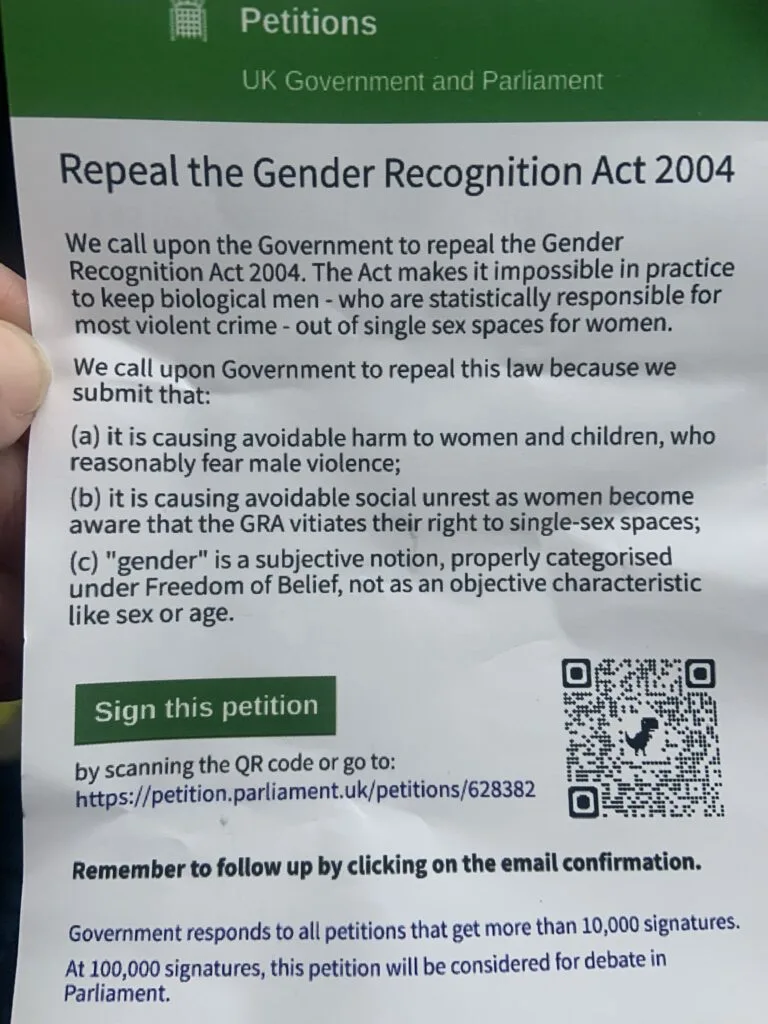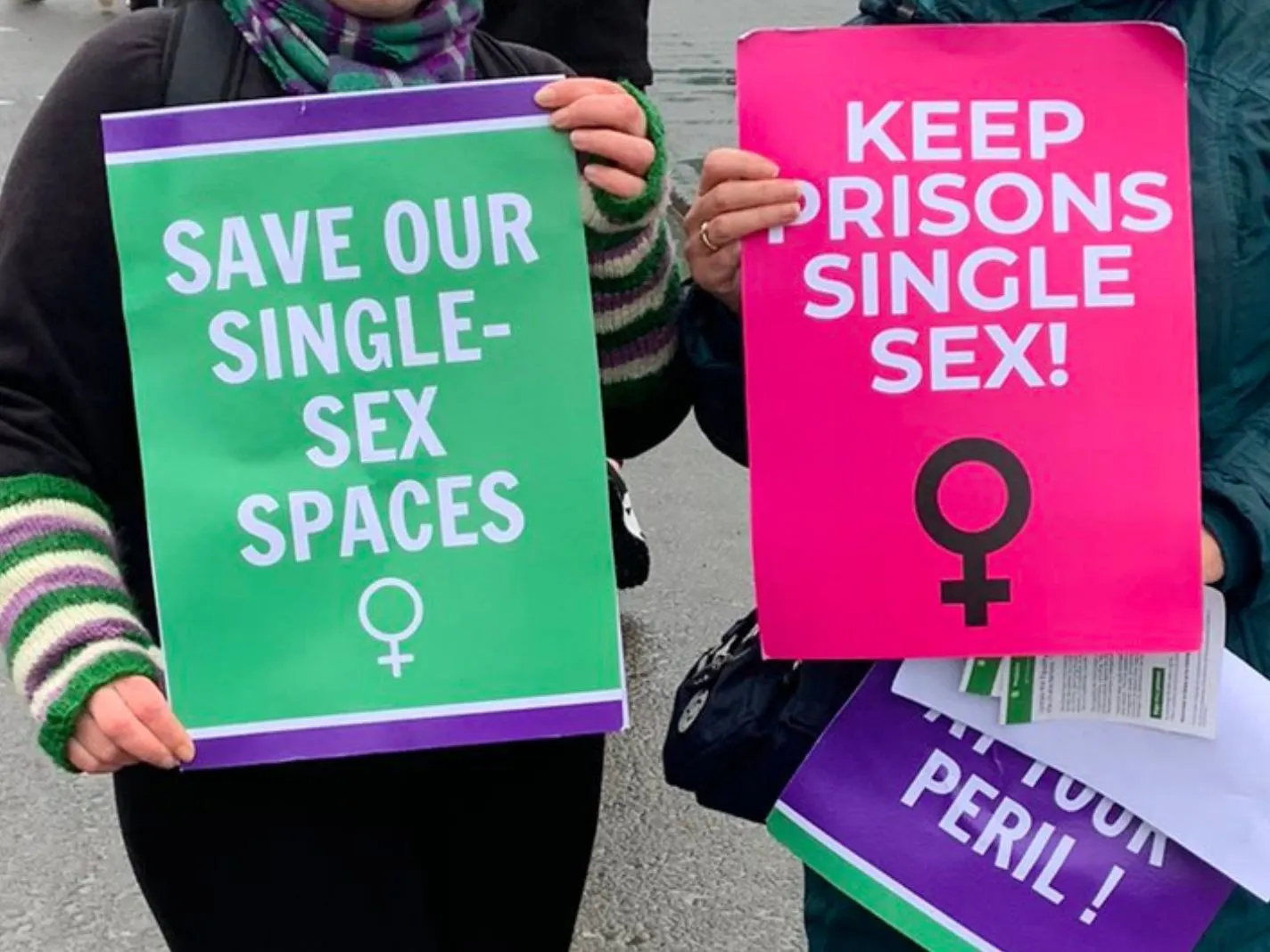In a worrying development for the trans community and for the world of inclusive football, anti-trans campaigners distributed leaflets outside of Celtic Park, home of the famous Scottish football club, a few days ago.
The leaflets urged people to sign a petition calling for the repeal of the Gender Recognition Act of 2004, claiming that single-sex spaces are no longer safe if trans women are allowed in them.

This has sparked concerns about the rise of transphobia in football, a sport that has traditionally been a powerful force for social inclusion.
The Gender Recognition Act (GRA) was introduced in 2004 to allow trans people in the UK to legally change their gender.
Under the GRA, trans people must provide medical evidence and undergo a two-year waiting period before they can receive a Gender Recognition Certificate (GRC).
The certificate allows them to change their legal gender on their birth certificate and other official documents. The GRA, although still underutilized, has helped many trans people to live freely and to access vital services and support.
However, some anti-trans campaigners argue that the GRA undermines the rights of cisgender women by allowing trans women to access women-only spaces, such as changing rooms, prisons, and toilets.
They claim that trans women are a threat to cisgender women’s safety, and often cite prison and sex-offending data from the olden days to support this. These arguments have been used to justify transphobia and discrimination against trans people.
Dr Kate Coleman, a member of Keep Prisons Single Sex, expressed concern that the GRA posed a risk to women in prison. She argued that granting a Gender Recognition Certificate (GRC) increased the likelihood of a request for transfer is granted, but trans female prisoners were still risk-assessed in the same way as non-trans prisoners, leaving women in prison at risk.
These claims are not all fluff, as cases like that of Isla Bryson do need attention, however, generalizing these to all trans people is dangerous.
Additionally, Sandy Brindley, the chief executive of Rape Crisis Scotland, argued that removing perceived barriers to obtaining a GRC would not affect disclosure of sexual offending.
She dismissed concerns that self-declaration could be abused, stating that the self-ID system had been in place for 15 years without reports of abuse. She said, “It’s absolutely right to be really cautious of any legal reform and unintended consequences, but certainly from the evidence I’ve seen, there is no evidence of people using systems of self-ID to abuse, for example, women within rape crisis services”.
Naomi McAuliffe of Amnesty International Scotland cited examples from other countries that have introduced self-ID, similarly saying that any concerns about abuse had not been borne out in practice.
Football has the power to bring people together and break down barriers, but incidents like this risk alienating trans fans and players. It is concerning that anti-trans campaigners are targeting football clubs which have traditionally been champions of diversity and inclusion.
Celtic have a long history of promoting inclusivity and diversity. The Proud Huddle CSC is Celtic’s first LGBT supporters club and has always had the vocal support of Celtic FC.
The club has also been involved in initiatives to tackle sectarianism and racism, such as the “Football for All” campaign, which aims to promote a more inclusive and welcoming atmosphere at football matches. Despite the recent incident with the anti-trans leaflets, the club’s commitment to promoting inclusivity and diversity remains unwavering.
Celtic has confirmed that permission was not sought to leaflet on the grounds and that they would have rejected the request if it had been made.
This is a positive step and shows that the club is committed to promoting inclusion and diversity. However, more needs to be done to address transphobia in football and to support trans fans and players.
The incident at Celtic Park is a stark reminder of the ongoing battle for trans rights and the need to combat transphobia in all areas of society, including football.
As the Scottish Parliament considers changes to the Gender Recognition Act, it is important to remember that transphobia and hate crimes against the transgender community are still prevalent in the UK.
The recent murder of Brianna Ghey, a 16-year-old transgender girl, serves as a heartbreaking reminder of the discrimination and violence that trans people face. Only by working together can we create a more inclusive and accepting society for all.








Point
Saturday 25th of February 2023
So, could you explain why women asking for support for single sex spaces that men can’t come into is a problem? Why is it ‘transphobic’?
Kev
Saturday 25th of February 2023
Pretty one-sided line you've taken with selective quotes. This is a hot debate and including commentary about a tragic murder not even in Scotland and not yet clear whether a hate crime is distasteful at best. The reality is that the extension of self ID does effectively remove those few sex-based rights women have, as anyone who says they want to be considered a women can take them, whether that's because they feel in their heart they should have been born the opposite sex or they just want to access women's spaces. Me and plenty of my mates at the game at the weekend were understanding of the reality of change in this being a reduction of these rights for women. We should be having a debate on the balance of rights for women and trans folk, and immediately dismissing women with valid concerns as transphobes and bigots just makes this all the more unresolvable. I also see you elected to omit reporting the reply tweets from men threatening physical violence, including with golf clubs, made to this handful of middle-aged women giving out some leaflets about asking the government to debate their rights under equality laws.